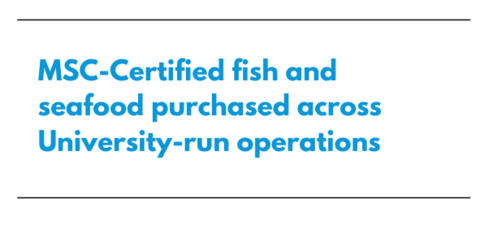CONSERVE AND SUSTAINABLY USE THE OCEANS, SEAS AND MARINE RESOURCES FOR SUSTAINABLE DEVELOPMENT

The goals of SDG 14 are to protect marine ecosystems from pollution, overfishing, acidification, and other human activities while increasing the sustainable use of marine resources. The SDG recognizes that our oceans are a source of economic, social, and environmental resources and that oceans play a crucial role as a global climate system regulator. The Water Institute at the University of Waterloo has many programs that address water issues, in both fresh water and oceans.


Water Institute
The Water Institute provides an on-campus network of excellence in water research, education, and innovation. Their researchers represent a wide breadth of disciplinary expertise with a membership of over 170 faculty members and 300 graduate students from across all six faculties. The University of Waterloo is now ranked among the world’s top academic water research and education institutions, and our faculty and students are making a significant contribution in advancing the sustainable use and management of water.
Vulnerability to Viability Global Partnership
The University of Waterloo leads the Vulnerability to Viability (V2V) Global Partnership which brings people and organizations together across physical, cultural, and disciplinary boundaries to address global change impacts on small-scale fisheries. The knowledge network currently has over 100 members from Africa, Asia, Canada, and internationally. The Field School in India provides educational outreach and training for local, national, and international communities on unregulated and destructive fishing practices.
Collaborative Water Graduate Program
The Collaborative Water Graduate Program promotes the development of interdisciplinary perspectives on water and is delivered jointly by 11 departments and schools from across all six University of Waterloo faculties. Co-ordinated and supported by the Water Institute, the program provides students with the opportunity to study complex water problems, learning how to work in interdisciplinary teams to better understand and address these water issues.
Environmental Change and Governance Group
The Environmental Change & Governance Group undertakes collaborative, methodologically creative, and applied research to enhance the connection between people and nature, and foster governance strategies for conditions of rapid change and uncertainty in coastal-marine and freshwater systems. Major research themes focus on small-scale fisheries and livelihoods, community-based conservation, coastal commons, and adaptation.
